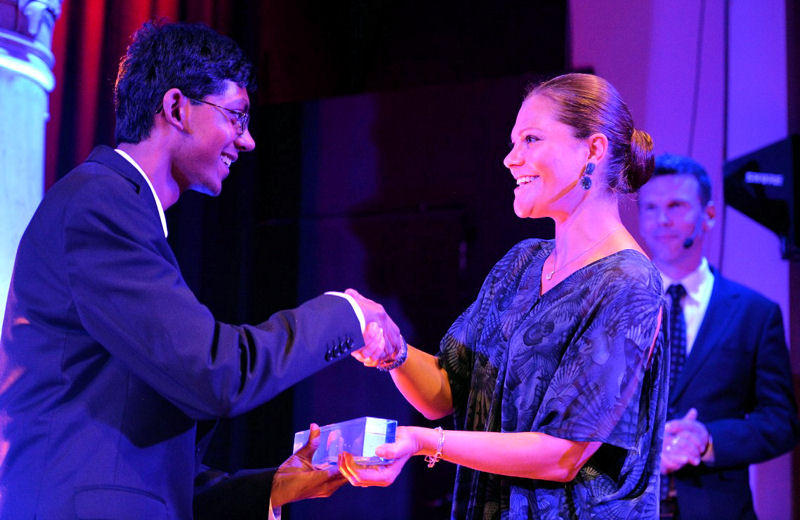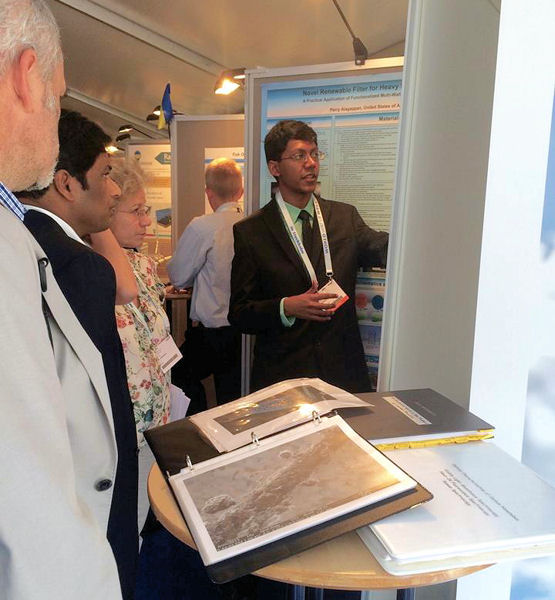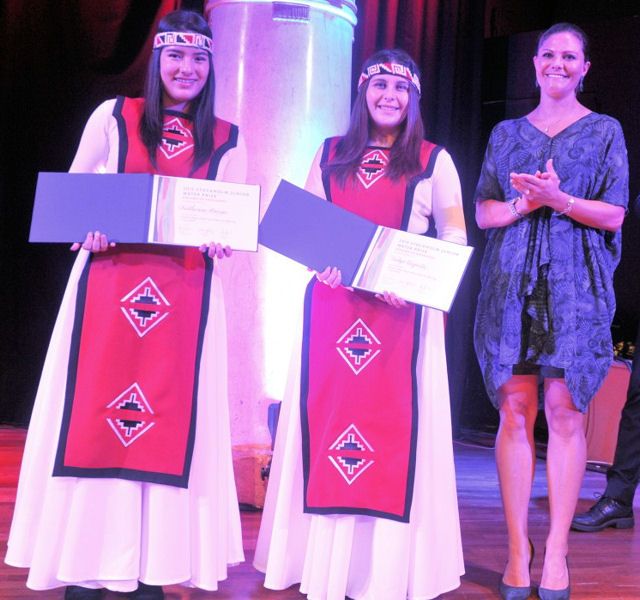
Perry Alagappan, who was the U.S. contestant, receives the 2015 International Stockholm Junior Water Prize (SJWP) from the Crown Princess Victoria of Sweden during World Water Week. Photo courtesy of Jonas Borg, Stockholm International Water Institute.
Perry Alagappan wanted to permanently remove heavy metal contamination from water. Because many heavy metal filters are nonrenewable, contaminants are released back into the environment when the filters are thrown away. So, the 18-year-old student from Houston created a solution that relies on a renewable filter.
On Aug. 25, this solution earned Alagappan the 2015 International Stockholm Junior Water Prize (SJWP). During World Water Week in Stockholm, Crown Princess Victoria of Sweden presented Alagappan with the prize, which consists of a crystal sculpture and $15,000.

Alagappan talks to judges during the International SJWP competition about developing a renewable system to remove heavy metal contamination from water. Water Environment Federation (Alexandria, Va.) photo/Stevi Hunt-Cottrell.
Alagappan developed multi-walled carbon nanotubes deposited on quartz wool, purified through oxidation and sonification, and functionalized with epoxides. His tests showed that the filter efficiently removed more than 99% of cadmium, mercury, nickel, cobalt, and lead from contaminated water and proved the filter to be fully renewable. His project, “Novel Renewable Filter for Heavy Metal Removal: A Practical Application of Functionalized Multi-Walled Carbon Nanotubes,” introduces a first-of-its-kind filter that removes these contaminants from drinking and industrial wastewater, according to the official announcement from the Stockholm International Water Institute (SIWI; London).
The project “addresses a critical water issue with broad implications for the whole world,” and “the technology used in the project could revolutionize the way water can be treated and heavy metals recovered,” according to the official citation by the SJWP jury.

Katherine Araya and Katya Urqueta from Chile receive a Diploma of Excellence from Crown Princess Victoria of Sweden during World Water Week. Photo courtesy of Jonas Borg, Stockholm International Water Institute.
The international SJWP competition, administered by SIWI, brings the world’s brightest young scientists together to encourage continued interest and research in water and the environment. Winning teams from 29 countries entered the 2015 competition. In addition to Alagappan’s prize, a Diploma of Excellence was awarded to students Katherine Araya and Katya Urqueta from Chile for improving water use efficiency in agriculture.
The Water Environment Federation (Alexandria, Va.) and its Member Associations organize the national, state, and regional SJWP competitions with support from Xylem Inc. (White Plains, N.Y.). Xylem also sponsors the international competition and the $1000 Bjorn von Euler Innovation in Water Scholarship Award.
Alagappan describes his project after being named recipient of the 2015 International SJWP. Video courtesy of Stockholm International Water Institute.
— Jennifer Fulcher, WEF Highlights








September 30, 2015
Featured, Multimedia